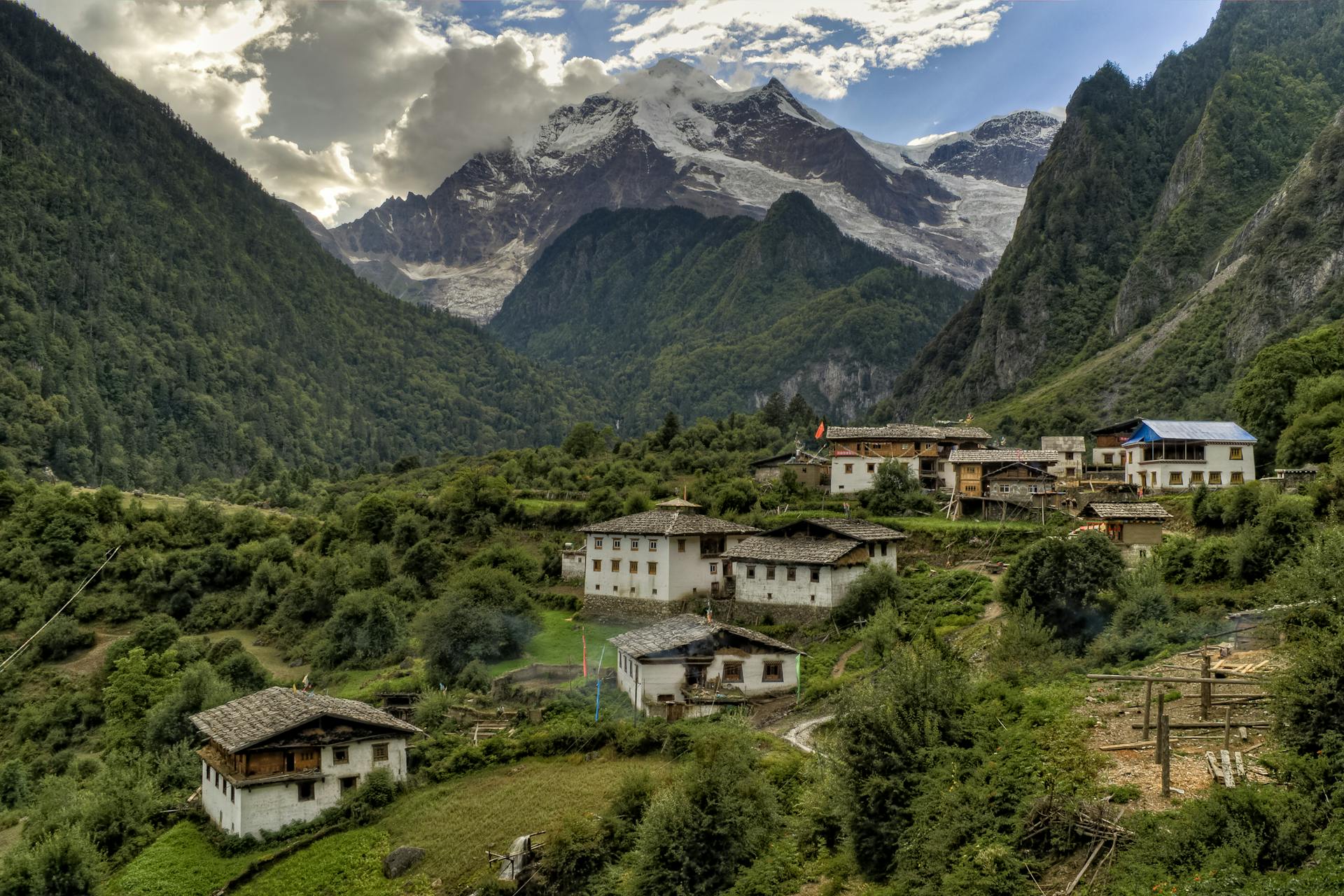Aksu, nestled in the heart of the Xinjiang Uyghur Autonomous Region, is a city of contrasts. Ancient silk roads and modern ambitions intertwine, carving a vibrant narrative of history and hope. The desert winds whisper tales of resilience, while the snow-capped Tian Shan Mountains loom in the distance, their silent peaks guarding secrets as old as time. In this city of crossroads—of East meeting West, of tradition and transformation—two lives collided in a way that would not only change their destinies but challenge the very essence of what it means to love, to lose, and to find purpose again.
This is a story of Aksu, where sandstorms cannot erase memories and where the echoes of chance meetings linger in the alleys of time.
Tarin was not like the other girls in Aksu. At thirty-two, her wisdom set her apart. Her almond-shaped eyes, dark and contemplative, held secrets as vast as the Taklamakan Desert. She taught at the local university, where students affectionately called her “The Desert Scholar.” Her classes on literature often transformed into lessons on life, peppered with Uyghur proverbs and age-old tales of the Silk Road.
But her life was far from perfect. Tarin carried an invisible weight, a quiet grief that left its shadow on her every smile. Her father, a merchant, had vanished one winter, swallowed by the unrelenting desert. From that day, Tarin’s world had become an intricate balance of hope and resignation, her solace found in books, her escape in the whispers of ancient poetry.
Eren was a drifter, a photographer from Istanbul, whose journey across the world was fueled by a restlessness he couldn’t tame. At thirty-six, he had captured the frozen steppes of Mongolia, the vibrant chaos of Indian bazaars, and the quiet melancholy of abandoned Turkish villages.
Aksu was supposed to be just another stop. Drawn by the city’s enigmatic charm, he wanted to document the interplay of ancient Uyghur traditions and modern Chinese influences. His camera became his companion, capturing fleeting smiles, market scenes, and the endless expanse of the desert.
But what his lens couldn’t capture was the emptiness within him. Eren was haunted by his own ghosts—a failed marriage, estranged family, and a life that felt more like a series of detours than a journey with meaning.
Their paths crossed at the Kashgar Bazaar in Aksu, where the aroma of roasted lamb mingled with the scent of dried apricots. Tarin was arguing passionately with a vendor over the price of a silk scarf, her voice calm yet resolute.
Eren, intrigued, raised his camera to capture the scene. But Tarin, sensing his gaze, turned sharply. “Do you always steal moments without asking?” she said, her tone more curious than accusing.
Caught off guard, Eren lowered his camera. “Only when they’re worth stealing,” he replied with a crooked smile.
Tarin’s lips curved slightly. “Then perhaps you should ask permission first.”
What began as a brief exchange turned into hours of wandering the bazaar together. Tarin became his guide, weaving stories of Aksu’s history into their conversation. Eren, in turn, shared tales of his travels, his voice tinged with both wonder and weariness.
By sunset, they found themselves atop an ancient watchtower overlooking the city. The wind carried the scent of the desert, and the fading sunlight painted the rooftops in gold.
“You’re not like the others,” Eren said quietly, breaking the silence.
Tarin smiled faintly. “Neither are you.”
As days turned into weeks, Eren and Tarin’s connection deepened. They explored the hidden corners of Aksu together—the ancient ruins of Kuqa, the serene orchards, and the stark beauty of the desert.
In Tarin, Eren found an anchor, someone who understood the weight of loss and the beauty of impermanence. In Eren, Tarin discovered a mirror, a soul as restless as her own, yet yearning for meaning.
But their love was not easy. Tarin feared the transience of Eren’s presence. She had seen too many people leave, too many promises broken. And Eren, though deeply drawn to Tarin, struggled with the idea of staying.
One night, beneath a sky blanketed with stars, Tarin asked him, “Do you believe in certainty?”
Eren looked at her, his eyes reflecting the cosmos above. “I used to. Now, I only believe in moments.”
Her heart ached at his words, but she understood. Life in Aksu had taught her that the desert claims everything in time—people, promises, even love.
Their story in Aksu was brief but unforgettable. When the time came for Eren to leave, Tarin didn’t ask him to stay. Instead, she gave him a scarf—woven with silk threads the color of the desert sky—and a single word: Sabır (patience).
As the train pulled away from Aksu, Eren felt the weight of the scarf around his neck and the heavier weight of unspoken words in his heart.
Years later, Eren would return to Aksu, no longer a wanderer but a man with purpose. And there, amidst the shifting sands and the timeless whispers of the Silk Road, he would find Tarin again—this time, with a promise of certainty.
Aksu, with its winds and whispers, had brought them together. Their love, like the city itself, was a tapestry of contrasts—fragile yet enduring, fleeting yet eternal.
For those who wander and those who wait, the story of Eren and Tarin is a reminder that life is neither about certainty nor control. It’s about embracing the fleeting beauty of moments, even as the sands of time threaten to erase them.
In Aksu, love is not just a feeling; it is a question—a question that lingers, challenges, and changes you forever.

Leave a Reply